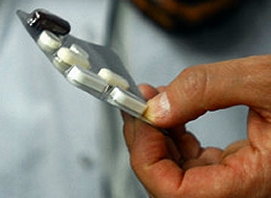
THERE is need for more resources to be channelled to the diagnosis and treatment of drug-resistant tuberculosis (DR-TB) in a bid to curb the diseases from spreading, a Ministry of Health and Child Care official has said.
Feluna Nleya
Buhera district medical officer Shelton Kwiri said effectively treating detected cases was better than waiting for more people to be infected. “Numbers of DR-TB appear to be small, but it is a problem,” Kwiri said.
“If we leave them [people infected with DR-TB] untreated, they will spread it to others and then we have more people affected.
“It will then be an epidemic so we have to pour resources into managing those cases now.”
DR-TB can only be detected by GeneXpert machines.
Health experts have said that treating DR-TB is expensive, warning the country could not afford to let the disease spread.
A patient on treatment for the disease needs an injection everyday for six to eight months and also has to take more than 14 tablets a day. Buhera district has enrolled 38 DR-TB patients to date since the programme started in 2010.
- Chamisa under fire over US$120K donation
- Mavhunga puts DeMbare into Chibuku quarterfinals
- Pension funds bet on Cabora Bassa oilfields
- Councils defy govt fire tender directive
Keep Reading
Fourteen of the cases have been cured, while 12 were still on treatment and six have died.
The World Health Organisation (WHO) estimates that Zimbabwe has at least 1 000 DR-TB patients.
Médecins Sans Frontières (MSF)-Belgium medical doctor responsible for the DR-TB/HIV Murambinda project Ye Htum Naing said direct observed treatment (DOT) was the model being used in trying to manage DR-TB, but has its own challenges.
“Community based DOT is the best option, but the challenge in Zimbabwe is that only doctors and nurses can inject patients,” Naing said.
This means more nurses are to go into the field to inject the patient or have the patient visit the health facility everyday.
Naing said they had given some able bodied patients who stay away from the clinic bicycles to enable them to get to the health facility for treatment.
According to MSF, DR-TB developed because of improper use of anti-TB medicines and now these deadlier DR-TB strains were spreading from person to person even to people who have never had TB before.











